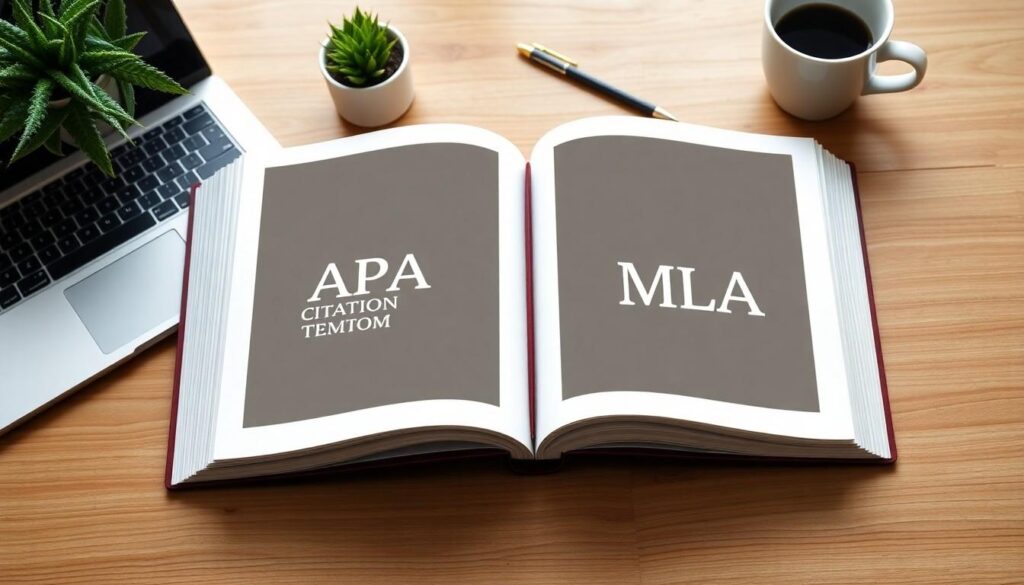Table of Contents
ToggleIn a world where AI is the new best friend, citing information from ChatGPT might feel like trying to teach a cat to fetch. But fear not! Navigating the citation maze doesn’t have to be a Herculean task. Whether you’re a student aiming for that perfect paper or a professional looking to add some AI flair to your work, knowing how to properly reference this digital oracle is crucial.
Understanding the Importance of Citing Sources
Citing sources fosters academic integrity. It provides credit to the original creators, avoiding plagiarism. Proper citation also boosts credibility for students and professionals alike. When referencing AI-generated content, accuracy remains crucial.
Clear citations allow readers to trace information back to its source. They offer transparency regarding where ideas originate. In the realm of academic writing, citations enhance the trustworthiness of an argument.
Students writing papers benefit significantly from learning citation methods. Professionals using AI tools like ChatGPT enhance their work quality through rigorous sourcing. Standards vary across disciplines, so knowing the preferred citation style helps improve the overall presentation.
Beyond academia, businesses incorporating AI solutions rely on proper citations for reports and presentations. Ethical considerations come into play when using AI-generated text. Adhering to citation guidelines helps maintain professionalism in any setting.
Shifting the focus to the evolving landscape of content creation, AI’s role continues to expand. Adequate citation practices remain essential as the use of AI becomes more common. Understanding how to reference AI-generated information contributes valuable skills for any writer.
Common Citation Styles

Citing information from AI tools like ChatGPT requires familiarity with standard citation styles. The two most common styles are APA and MLA, each serving specific academic needs.
APA Style
In APA style, cite ChatGPT-generated content in the following format: Author. (Year). Title of the response. Source. For example, if citing a response from ChatGPT, it could look like this: OpenAI. (2023). Response to user query. ChatGPT. This method emphasizes the author and date, allowing readers to locate the source easily. When using this citation style, it’s crucial to provide clear references to enhance clarity and credibility.
MLA Style
For MLA style, information is cited differently. The format typically includes the author, title, website name, and publication date. A citation may appear as follows: OpenAI. “Response to User Query.” ChatGPT, 2023. This layout promotes easy identification of the source information. Using MLA style demands attention to detail, ensuring that all elements are presented correctly for proper reference tracking.
How to Cite Information From ChatGPT
Citing information from ChatGPT involves understanding proper citation methods. Readers can track sources effectively, ensuring integrity and credibility in their work.
In-Text Citations
In-text citations for ChatGPT vary by style guide. In APA format, reference the author and year of the response like this: (OpenAI, 2023). This includes the author as OpenAI and the response date. For MLA, mention the author’s name in the sentence, followed by the information: according to OpenAI. Clarity in these citations is crucial for maintaining academic standards and ensuring proper attribution. Use these formats consistently to establish trustworthiness in your work.
Reference List Entries
Reference list entries offer critical details for identifying sources. Under APA style, the format reads: OpenAI. (2023). Title of the response. Retrieved from URL. MLA citations typically follow this structure: OpenAI. “Title of the Response.” Website Name, Day Month Year, URL. These specific details provide clear identification for readers wanting to verify information. Adhering to citation standards across disciplines gives credit to original creators and bolsters the overall quality of written work.
Best Practices for Citing AI Sources
Citing AI sources like ChatGPT requires careful attention to detail. Begin by identifying the author and year of the content. In APA format, the citation starts with the author’s name, followed by the publication year in parentheses.
Provide a precise title of the response in italics to indicate the nature of the source. Include the source name, OpenAI, after the title. In MLA format, the structure changes: mention the author in context and provide essential details about the response.
Avoid using vague phrasing. Precise details enhance the clarity of your citation. Structure both in-text and reference list entries meticulously, ensuring that every element remains accurate. The in-text citation in APA follows the form (OpenAI, 2023) while MLA formatting requires contextual wording, such as “according to OpenAI.”
Maintain consistency across citations. Whether using APA or MLA, clarity and uniformity help readers trace the information back to its source. Acknowledge the importance of various citation styles across disciplines to meet academic requirements.
Recognize ethical considerations tied to using AI-generated content. Accuracy in citations upholds professional standards and contributes to academic integrity. Cite AI-generated text properly to strengthen your arguments and enhance the overall quality of your work.
Familiarize yourself with specific guidelines related to your field or institution. Incomplete citations might lead to ethical dilemmas or accusations of plagiarism. Effective citation practices give credit to creators and uphold the credibility of all written materials.
Mastering the art of citing information from ChatGPT is essential for anyone engaging with AI-generated content. Proper citations not only uphold academic integrity but also enhance the credibility of the work. By following established citation styles like APA and MLA, users can effectively credit original creators while providing clarity for their readers.
As AI continues to play a significant role in content creation, understanding these citation practices becomes increasingly important. Embracing this skill will not only elevate the quality of written materials but also foster a culture of professionalism and respect for intellectual property. Ultimately, accurate citations are a vital component of effective communication in today’s evolving landscape.







